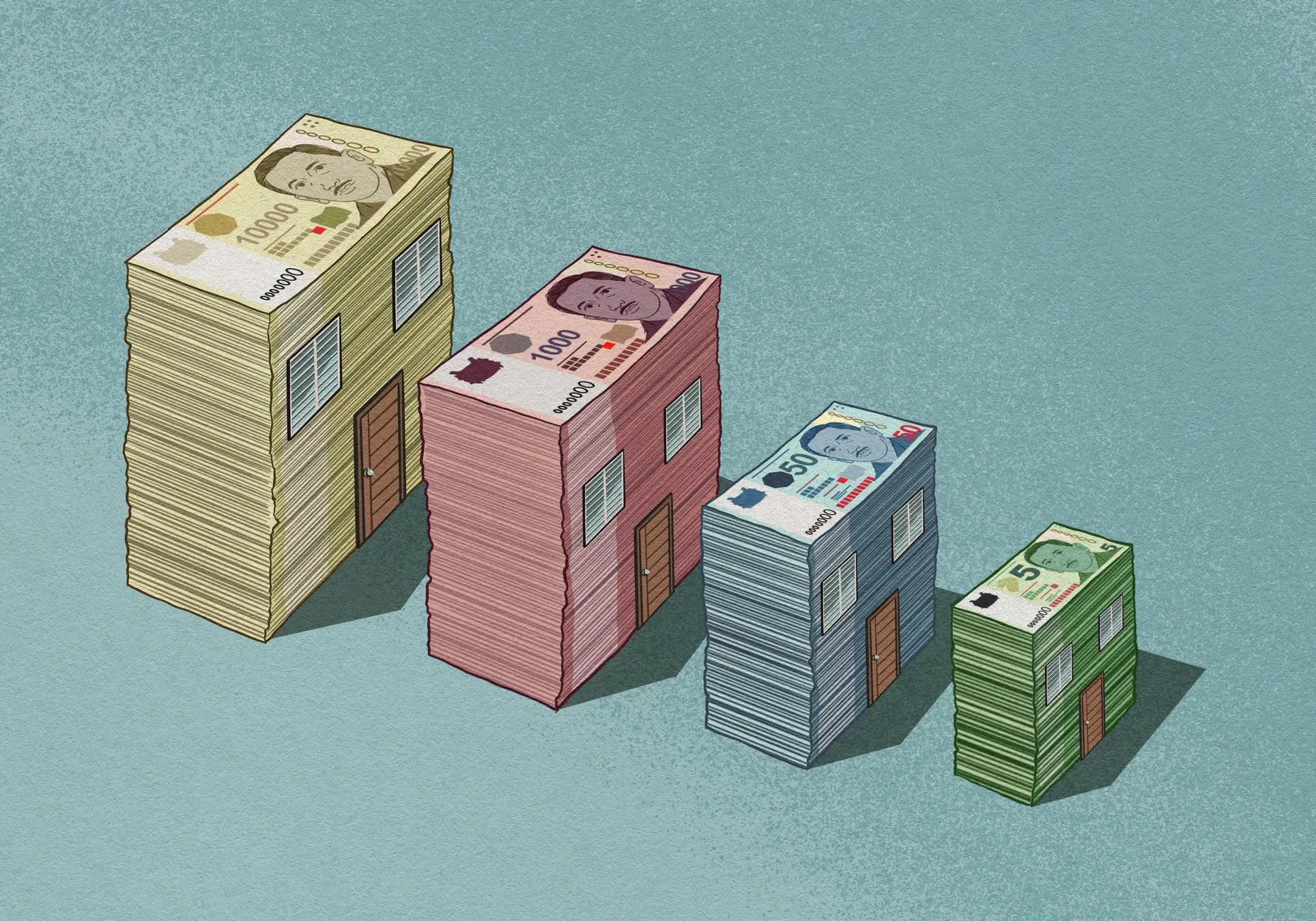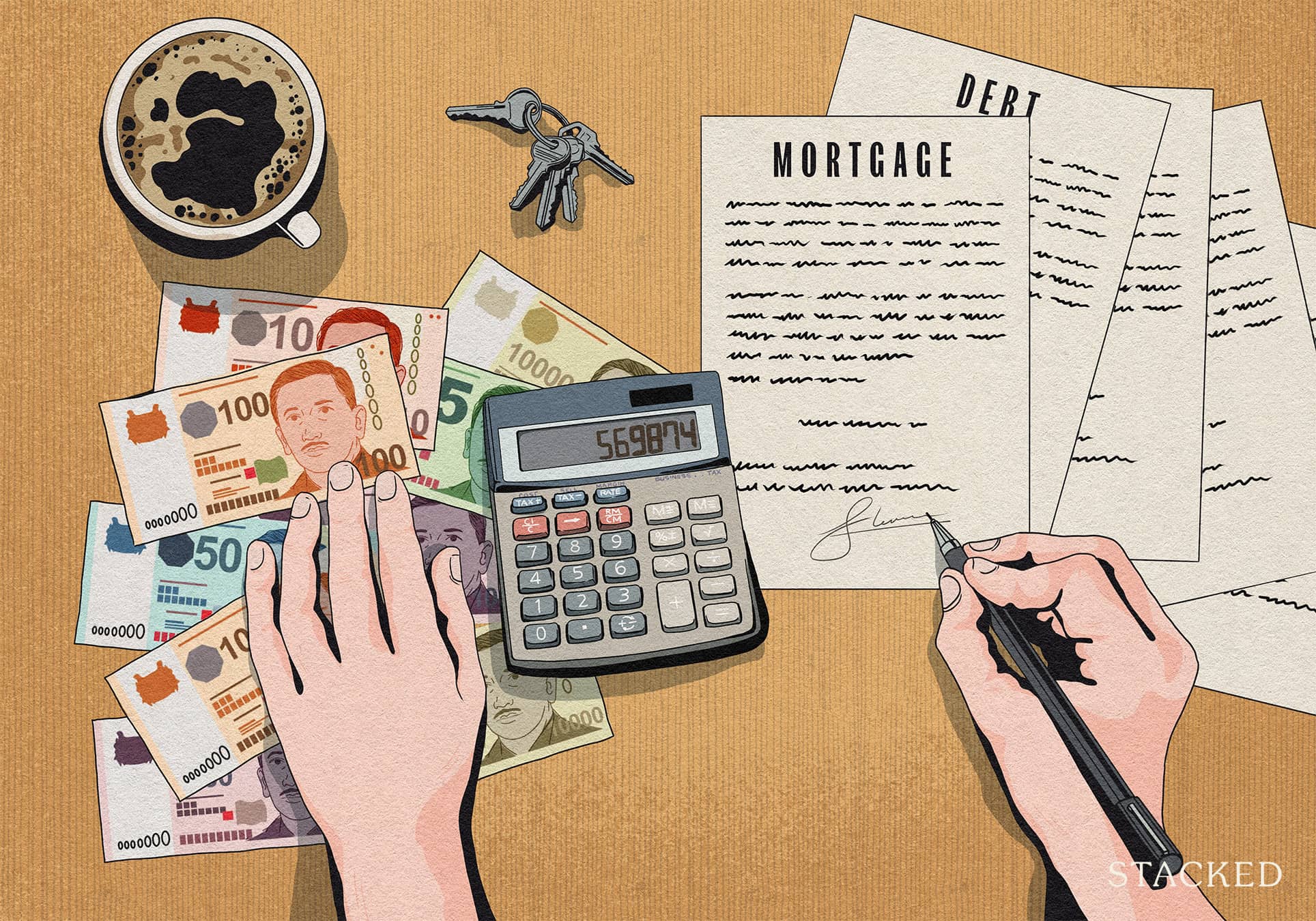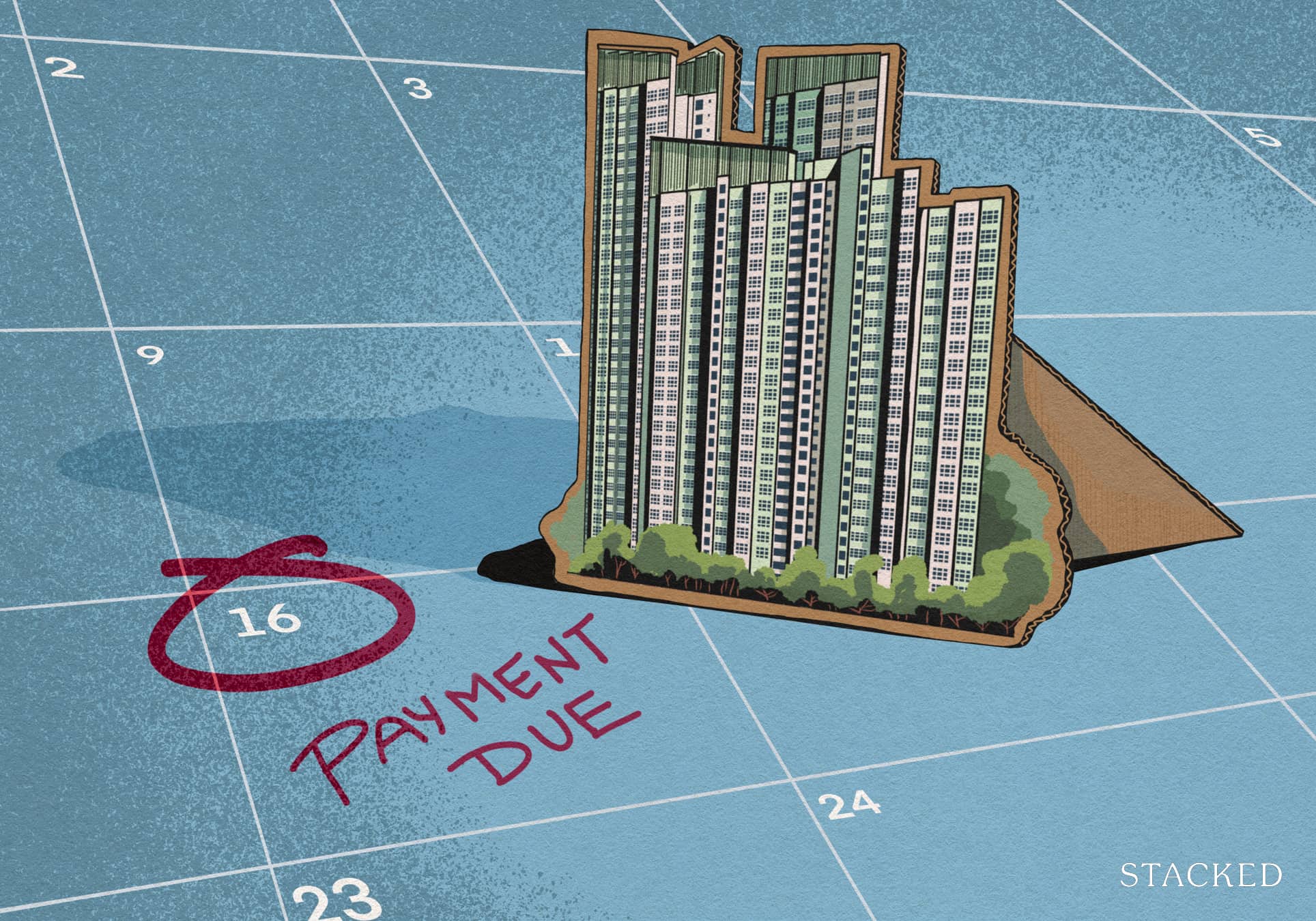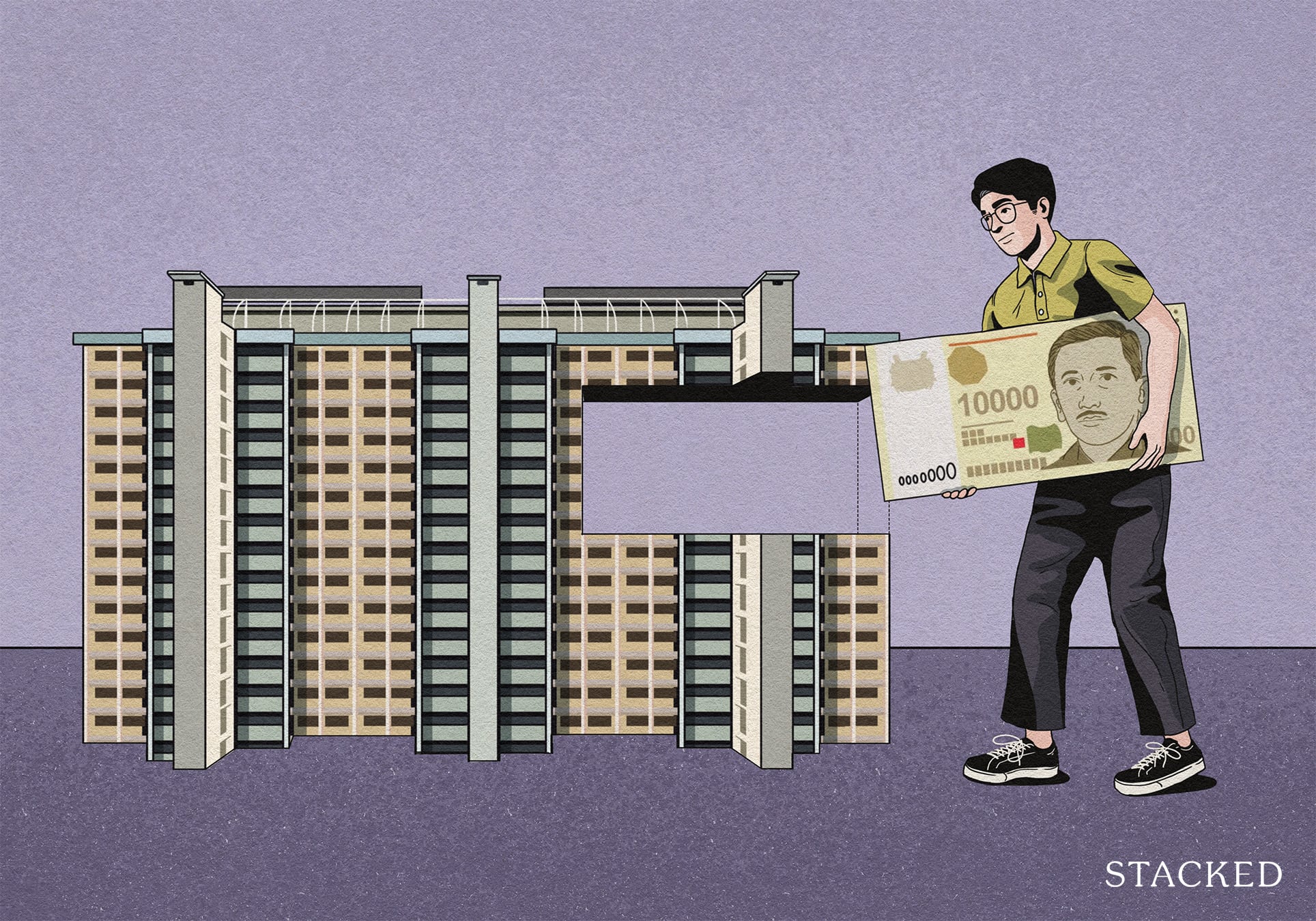Is 2024 The Right Time To Refinance Your Home Loan? Here’s What Homeowners Need To Consider
February 27, 2024

Home loan interest rates average around three per cent as of 2024, with many loan packages inching toward four per cent in later years (usually in the fourth year or thereafter). Along with the recent switch to SORA-based loans, many homeowners have been pondering if now is the right time to find a cheaper loan package. Here’s what you need to know, before making your decision:
Many readers write in because they're unsure what to do next, and don't know who to trust.
If this sounds familiar, we offer structured 1-to-1 consultations where we walk through your finances, goals, and market options objectively.
No obligation. Just clarity.
Learn more here.
A note on SORA conversion packages
Part of the reason we’re writing this is due to the SORA conversion. SORA is the new index that will replace SIBOR, for determining home loan interest rates. At this point, you’ve likely received a letter from your bank, offering conversion packages.
Note that there’s no option to stay with SIBOR, and if you do nothing, the conversion will be automatic from 1st June this year.
In addition, if you do switch loans due to the transition, and are unhappy about the switch later, banks will allow you to make another one-time free switch; this offer lasts until the end of this year (31st December.
One significant factor is that new loan restrictions won’t apply if you use a loan package from the same bank. So if you got your home loan 10+ years ago, before changes such as the reduced LTV ratio or TDSR framework, the bank won’t have to recalculate your loan to ensure you qualify. If you need to refinance anyway, it’s less of a hassle if you do it right now.
(But if you refinance to another bank entirely, they will still need to check if you qualify under the new restrictions).
Key issues when refinancing in 2024
Some other considerations to note are:
- 1. The higher interest rate and floor rate
- 2. Less common to get a waiver if the property is sold after refinancing
- 3. Fixed deposit rates may also increase, affecting board rate loans
- 4. How long ago you got your current loan
- 5. A longer interest rate period may pay off while rates are rising
- 6. Whether the housing market in 2024 has changed your upgrading plans
1. The higher interest rate and floor rate
The higher interest rate is the main concern, which we’ve covered in this previous article. Due to rising home loan rates, it may be ideal to lock in a fixed rate or a lower rate package now, while the SORA conversion is available.

Another factor here, however, is the floor rate used to calculate TDSR. This is at four per cent, and it’s always set higher than actual home loan rates, to ensure borrowers can cope if rates rise. However, some borrowers who got their loans in earlier years would have (1) a lower floor rate of 3.5 per cent, and (2) a higher TDSR limit, which allowed repayments of up to 60 per cent of their monthly income (today it’s dropped to 55 per cent).
In future, given rising rates and prices, the floor rate may be raised further, and cooling measures may even lower the TDSR limit. We also need to consider TDSR factors in other loans, such as car loans and education loans: so if those other loan repayments increase due to rising interest, it can also affect your ability to meet TDSR limits.
As such, it may be easier to refinance now, while you still meet the requirements, compared to a few years down the road.
2. Less common to get a waiver if the property is sold after refinancing
This wasn’t an issue in the past, but many refinancing packages these days don’t include a waiver if the property is sold after refinancing during the lock-in period (typically 1 to 2 years).
The penalty is usually 1.5 per cent of the outstanding loan amount, but this can vary between banks.
As such, if you do have thoughts on selling your property, do factor in the penalty fee or calculate the cost and timeline should you choose not to refinance. You can possibly negotiate on this fee waiver when you refinance, but as always your mileage may vary depending on the bank.
3. Fixed deposit rates may also increase, affecting board rate loans
As central banks like the Fed raise interest rates, fixed deposit rates tend to move in tandem. We saw this last year, for instance, when fixed deposit accounts climbed to almost four per cent in some cases.

This is a cause for concern, among those who have board rates pegged to fixed deposit rates. In these loan packages, the interest rate is not pegged to an index like SORA, but rather to the lender’s fixed deposit products. In theory, this will disincentivise high-interest rates, as the lending bank would need to raise its liabilities (pay out more fixed deposit interest) to raise your home loan rate.
That was a nice theory in the low-interest environment of yesteryear; but given rate hikes, it’s best if borrowers took time to compare their existing board rates to floating rate packages out there. We recall the last round of complaints was in December 2022, when following rising interest rates, DBS raised interest rates of fixed deposits.
You can see the impact on fixed-deposit based loans from the bank (FHR loans) here. It’s quite a bit of an uptick.
So given the higher interest rate environment of 2024, fixed-deposit based board rates may not be the safe haven some initially felt they were.
4. How long ago you got your current loan
If you got your home loan during a trough period for interest rates, such as in 2020 when Covid struck and rates plummeted, then maybe you can ignore the need to refinance. Chances are, there are few to no packages in the market today that match what you have.
Even for the SORA conversion, you may be better off leaving it alone, and doing nothing (it will still convert to SORA but you may have a much lower spread). Check with a mortgage broker if you’re not certain though.
5. A longer interest rate period may pay off while rates are rising
The interest rate period refers to how long it is before your rates are revised, to match the relevant index. A one-month SORA rate (1M SORA), for instance, will revise your rates every month, whereas 3M SORA will revise it every quarter.

When interest rates are on the rise, it’s generally advisable to refinance into something with a longer interest rate period. E.g., assuming interest rates are rising each month, you want to be paying the same interest rates from last quarter, compared to interest rates right now.
Now the inverse is also true (when rates are dropping, you want the rates revised each month). So If you got your loan package in a time when interest rates were dropping, you may want to consider a change for the coming year or three.
6. Whether the housing market in 2024 has changed your upgrading plans
If you’re still going ahead with upgrading in a few years, then it may be wiser to stick with the lower interest rates of a floating-rate product. You are going to sell shortly anyway, so you just want to minimise the interest you pay in the meantime.
(Fixed-rate home loans tend to be pricier than floating-rate counterparts)
Conversely, if the high private property prices have dissuaded you, then you might want to do the opposite. If you now realise you’ll be staying put for a long time, then you may want to refinance into a fixed loan package with more predictable monthly repayments; or perhaps a loan package that’s got the lowest “fourth year and thereafter” rate, given your now longer-term holding period.
As a general rule of thumb, we suggest that pure owner-occupiers stick to predictable fixed rates, rather than go for lower apparent rates for the short term (which is what an investor with a shorter holding period should do). While it could mean paying a bit more, you’re at least sure your home loan rate won’t suddenly spike.
Overall, things are tricky in the home loans market right now: we’re not sure if rates will drop due to the wider economy, or if the Fed will maintain – or even raise – interest rates in response to inflation issues. This is a good time for homeowners to play it safe, and given you have one free switch at the end of the year (if you stick with the same bank), it may be worth trying something more conservative. When in doubt though, reach out to a mortgage broker for loan comparisons, or contact us at Stacked.
At Stacked, we like to look beyond the headlines and surface-level numbers, and focus on how things play out in the real world.
If you’d like to discuss how this applies to your own circumstances, you can reach out for a one-to-one consultation here.
And if you simply have a question or want to share a thought, feel free to write to us at stories@stackedhomes.com — we read every message.
Ryan J. Ong
A seasoned content strategist with over 17 years in the real estate and financial journalism sectors, Ryan has built a reputation for transforming complex industry jargon into accessible knowledge. With a track record of writing and editing for leading financial platforms and publications, Ryan's expertise has been recognised across various media outlets. His role as a former content editor for 99.co and a co-host for CNA 938's Open House programme underscores his commitment to providing valuable insights into the property market.Need help with a property decision?
Speak to our team →Read next from Property Advice

Property Advice We Can Buy Two HDBs Today — Is Waiting For An EC A Mistake?

Property Advice I’m 55, Have No Income, And Own A Fully Paid HDB Flat—Can I Still Buy Another One Before Selling?

Property Advice We’re Upgrading From A 5-Room HDB On A Single Income At 43 — Which Condo Is Safer?

Property Advice We’re In Our 50s And Own An Ageing Leasehold Condo And HDB Flat: Is Keeping Both A Mistake?
Latest Posts

Singapore Property News Why Some Singaporean Parents Are Considering Selling Their Flats — For Their Children’s Sake

Pro River Modern Starts From $1.548M For A Two-Bedder — How Its Pricing Compares In River Valley

New Launch Condo Reviews River Modern Condo Review: A River-facing New Launch with Direct Access to Great World MRT Station



































0 Comments